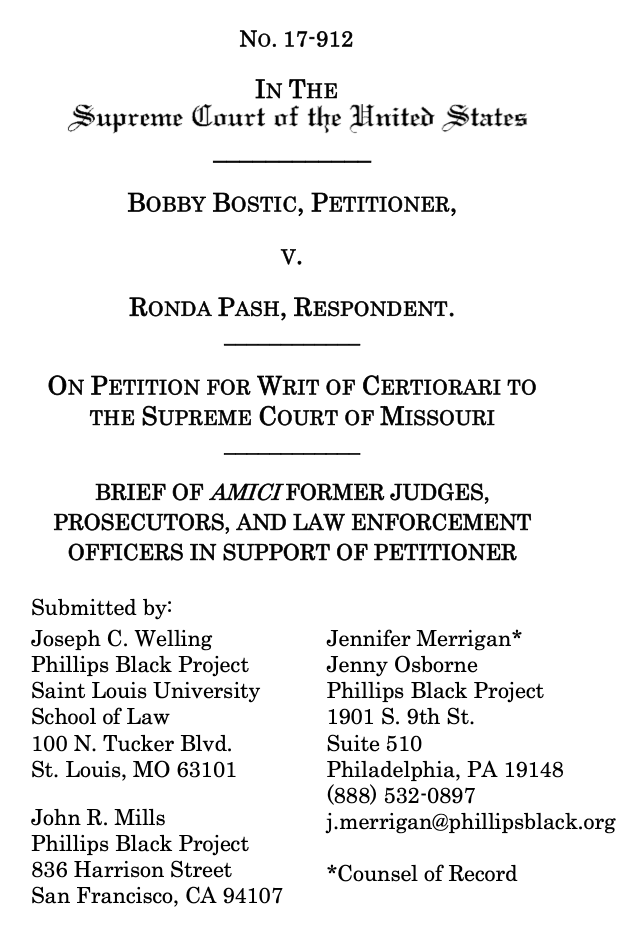
Summary of Argument
Bobby Bostic’s judge sentenced him to die inprison for nonhomicide offenses he committed at age 16. He will not become eligible for parole until he is 112 years old. Mr. Bostic’s sentence violates Graham v. Florida, 560 U.S. 48 (2010), because he will spend his life in prison without a meaningful opportunity to obtain release.
Graham held that sentences of life without possibility of parole for juvenile nonhomicide offenders violate the Eighth Amendment. It recognized that for such juveniles, their capacity for change and limited moral culpability prohibits irrevocably condemning them to die in prison. For that reason, states must provide them a “meaningful opportunity to obtain release based on demonstrated maturity and rehabilitation.” Id. at 75. The overwhelming weight of authority favors applying Graham to juveniles sentenced to aggregate term-of-years sentences exceeding their lifespan. Missouri has joined the small number of jurisdictions limiting Graham to juvenile nonhomcide offenders who have received a formal sentence of life without possibility of parole for a single offense.
Amici’s core argument—that juveniles are different from adults and should be treated accordingly even when sentenced to aggregate terms-of-years under multiple-count indictments—is supported by their collective centuries of experience. As former judges and prosecutors, amici have personally considered the total sentence in deciding what charges to file and whether to run sentences consecutively or concurrently. These decisions are made in light of the substance of the sentence imposed, not whether it is formally labeled life without parole. Although the Court has approved of that practice for adults, where a life without parole sentence is constitutional, the practice of crafting sentences that guarantee a juvenile nonhomicide offender will die in prison violates at least the spirit of Graham.
Mr. Bostic’s case epitomizes the rationale underlying the Court’s decision in Graham. After decades in prison following the “impetuous and ill- considered actions and decisions” he made at age 16, Mr. Bostic has grown and matured. But Missouri law does not afford him the opportunity to ever “demonstrate that he is fit to rejoin society.” The Court should grant certiorari and reverse the decision of the Missouri Supreme Court.